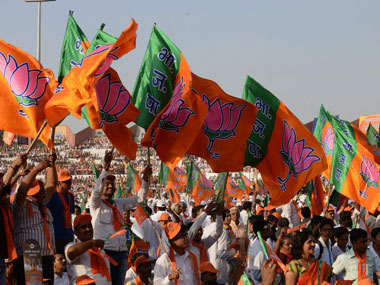In a surprising development, Jammu and Kashmir governor Satya Pal Malik dissolved the state Assembly on Wednesday night. The governor’s decision followed the staking of claims by rival coalitions — Sajjad Lone of the People’s Conference aligning with the BJP and PDP rebels on one hand, and Mehbooba Mufti of the PDP forming a grand coalition with the National Conference and Congress on the other. The attempts to form a coalition had gathered steam in the past few days, as the six month validity of Governor’s Rule was coming to an end. In the event of inability to form a government, Governor’s Rule would have given way to the promulgation of President’s Rule. The governor’s decision to dissolve the state Assembly reflects the enduring political uncertainty in Jammu and Kashmir. This is particularly true for the Kashmir Valley, where rival mainstream political parties — the Congress, NC and PDP continue to grapple with the BJP’s determined push in the region, against all odds. The reason for the BJP’s persistence is the willingness of some of the political leaders in the Valley, who have no particular aversion to the BJP, and who ultimately desire political power at any cost. [caption id=“attachment_5213911” align=“alignleft” width=“380”] Representational image. AFP[/caption] After the breakup of the BJP-PDP alliance in June this year, it was an open secret that the BJP’s central leadership was trying to cobble up another coalition in the state with Lone and some ‘willing’ rebels within the PDP. While Lone was a ready candidate to become the chief minister, the BJP found it difficult to make the ‘willing’ rebels split the PDP wide open. The BJP’s central leadership thought that with many of the candidates (whom it backed) winning urban municipal body seats in various parts of the Valley, that victory would decisively turn the tide for the party. And events of the past few days suggested that the BJP’s dream of forming another government was going to fructify soon. Power always trumps politics, but the ongoing political machinations in the Kashmir Valley bear out this axiom even more vividly. What threw the spanner in the BJP’s works was the extraordinary compromise or the political opportunism — depending on which side you are on — that was demonstrated by the regional rivals – PDP and NC — with the blessings of the Congress. Till a few days ago, such a compromise would have been unimaginable, and unviable, if you believe BJP-backed sources. In the emerging political scenario, both the PDP and National Conference sensed a political opportunity to decisively shut the BJP out of the Valley. The potential arrangement would have worked in every party’s favour. The PDP would have been able to wash its hands off the ‘unpardonable’ sin of holding Kashmir’s doors open for the BJP in the first place, and regain its lost credibility. The National Conference would have further burnished its claim of being the only pole of power capable of taking on the BJP in the Valley. More importantly, both the PDP and National Conference would have been able to thwart the efforts to prop up a third regional political force in the Valley. Meanwhile, the Congress would have found another opportunity to cock a snook at the BJP’s political game plan of ‘Congress-mukt Bharat’. The fact that the PDP-Congress-National Conference grand alliance seemed to secure the necessary numbers, including some from the ‘willing’ rebels of the PDP whom the BJP was wooing, once again shows that BJP’s central leadership continues to underestimate or miscalculate the Valley’s aversion to its right-wing agenda. It is important to note that even after close to five years of Prime Minister Narendra Modi proactively wooing Kashmiris, the statesman the state still recalls warmly is the late Atal Bihari Vajpayee. It was Vajpayee, who chose hope over fear, principles over power, compromise over confrontation and empathy over harshness. Modi’s approach, often confined to binaries — such as tourism not terrorism, and youths should have laptops not stones in their hands — meanwhile only evoked ridicule and pessimism among Kashmiris.
The decision to dissolve the state Assembly has to be seen in this context. It reflects sour grapes for the BJP that failed to cobble up the requisite numbers and found it safer to deny its rivals a chance.
This embarrassment will hopefully provide some lessons to the party’s central leadership that was presented four-and-a-half years ago with a golden opportunity to restore normalcy to Jammu and Kashmir and substantially improve India’s national security outlook. Instead it chose politics as its strategy to deal with Kashmir and today the results are evident. The Kashmir of 2018 is a faint reflection of the Kashmir of 2014, rather a strong mirror image of Kashmir of 1989. The BJP has already faced a setback in another region of the state that often claims to have been ignored by the Kashmir-dominated state politics. In Ladakh, the BJP’s only MP Thupstan Chhewang resigned recently, days after the party failed to open its account in the Leh and Kargil municipal bodies. Clearly, a lot needs to be done now for the party to reclaim its lost ground in Jammu and Kashmir.


)
)
)
)
)
)
)
)
)



